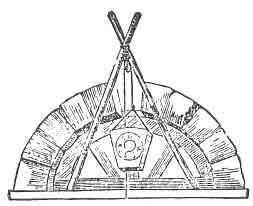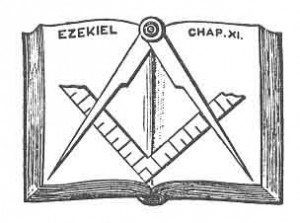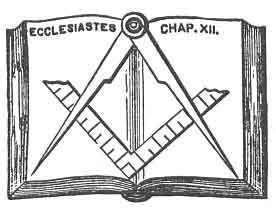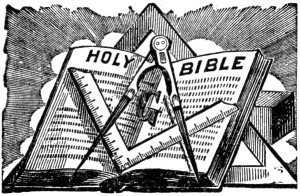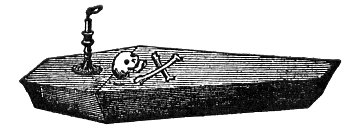All the true Initiates have recognized the usefulness of toil and sorrow. “Sorrow,” says a German poet, “is the dog of that unknown shepherd who guides the flock of men.” To learn to suffer, to learn to die, is the discipline of Eternity, the immortal Novitiate.
The allegorical picture of Cebes, in which the Divine Comedy of Dante was sketched in Plato’s time, the description whereof has been preserved for us, and which many painters of the middle age have reproduced by this description, is a monument at once philosophical and magical. It is a most complete moral synthesis, and at the same time the most audacious demonstration ever given of the Grand Arcanum, of that secret whose revelation would overturn Earth and Heaven. Let no one expect us to give them its explanation! He who passes behind the veil that hides this mystery, understands that it is in its very nature inexplicable, and that it is death to those who win it by surprise, as well as to him who reveals it.
This secret is the Royalty of the Sages, the Crown of the Initiate whom we see redescend victorious from the summit of Trials, in the fine allegory of Cebes. The Grand Arcanum makes him master of gold and the light, which are at bottom the same thing, he has solved the problem of the quadrature of the circle, he directs the perpetual movement, and he possesses the philosophical stone. Here the Adepts will understand us. There is neither interruption in the toil of nature, nor gap in her work. The Harmonies of Heaven correspond to those of Earth, and the Eternal Life accomplishes its evolutions in accordance with the same laws
p. 102
as the life of a dog. “God has arranged all things by weight, number, and measure,” says the Bible; and this luminous doctrine was also that of Plato.
Humanity has never really had but one religion and one worship. This universal light has had its uncertain mirages, its deceitful reflections, and its shadows; but always, after the nights of Error, we see it reappear, one and pure like the Sun.
The magnificences of worship are the life of religion, and if Christ wishes poor ministers, His Sovereign Divinity does not wish paltry altars. Some Protestants have not comprehended that worship is a teaching, and that we must not create in the imagination of the multitude a mean or miserable God. Those oratories that resemble poorly-furnished offices or inns, and those worthy ministers clad like notaries or lawyer’s clerks, do they not necessarily cause religion to be regarded as a mere puritanic formality, and God as a Justice of the Peace?
We scoff at the Augurs. It is so easy to scoff, and so difficult well to comprehend. Did the Deity leave the whole world without Light for two score centuries, to illuminate only a little corner of Palestine and a brutal, ignorant, and ungrateful people? Why always calumniate God and the Sanctuary? Were there never any others than rogues among the priests? Could no honest and sincere men be found among the Hierophants of Ceres or Diana, of Dionusos or Apollo, of Hermes or Mithras? Were these, then, all deceived, like the rest? Who, then, constantly deceived them, without betraying themselves, during a series of centuries?–for the cheats are not immortal! Arago said, that outside of the pure mathematics, he who utters the word “impossible,” is wanting in prudence and good sense.
The true name of Satan, the Kabalists say, is that of Yahveh reversed; for Satan is not a black god, but the negation of God. The Devil is the personification of Atheism or Idolatry.
For the Initiates, this is not a Person, but a Force, created for good, but which may serve for evil. It is the instrument of Liberty or Free Will. They represent this Force, which presides over the physical generation, under the mythologic and horned form of the God PAN; thence came the he-goat of the Sabbat, brother of the Ancient Serpent, and the Light-bearer or Phosphor, of which the poets have made the false Lucifer of the legend.
Gold, to the eyes of the Initiates, is Light condensed. They

Moe is the founder of GnosticWarrior.com. He is a father, husband, author, martial arts black belt, and an expert in Gnosticism, the occult, and esotericism.


